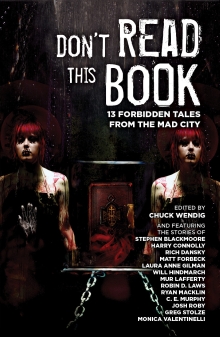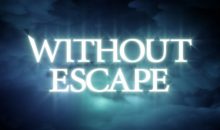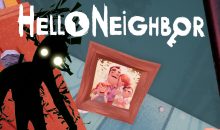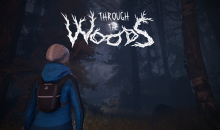Don’t (Do) Read This Book
The genesis of Don’t Read This Book is in Don’t Rest Your Head, a tabletop game from Evil Hat Productions. The premise: a surreal metropolis called the Mad City, straddling the boundaries between waking life and the sleeping world, operating off dream logic and sucking in the victims of nightmares, who are then granted unique and sometimes horrific powers spawned from their dreaming subsconscious. According to Read’s foreword, designer Fred Hicks drew the setting from a combination of a nightmare about a pursuing golem and a radio special about military experiments in sleep deprivation, which should give you a pretty good idea of the game’s gloomy, madcap aesthetic.
And from that setting was born inspiration, as a talented pack of writers from all corners of genre fiction descended on the Mad City to ransack it for fictional gems. Don’t Read This Book could be seen as a promotional event for the RPG, and if it is one it’s certainly a success, but it stands on its own as a well-produced urban/fantasy horror anthology; probably aided by the deft hand of editor Chuck Wendig.
The biggest issue facing Read goes hand-in-hand with its nature – the stories are all set in the same setting, and informed by that setting’s tone and content, so there’s a certain unavoidable same-iness. The choice of theme naming for the stories (“Don’t Lose Your Patients,” “Don’t Forget Your Kids,” “Don’t Harsh Your Buzz,” etc.) adds to this impression more than anything else. But at the same time, it presents a coherent experience that’s different from many anthologies, and there are enough standouts to prevent it from being a slog.
The most noteworthy piece in here is probably by veteran game designer Robin D. Laws, who broke ranks to contribute a poetic piece with a distinctly unpoetic title, “Don’t Lose Your Shit.” The poem follows a third-rate rock-and-roll critic starting to discover the Mad City, and joining a queue of other lost souls seeking, what else? Energy drinks. The use of energy drinks and other caffeine supplements to stay awake and avoid any one of a number of unspeakable fates is referred to in other stories, but Laws cleverly tackles one of the most prosaic elements of the Mad City setting with the most high-concept piece in the anthology. I am, myself, an awful judge of poetry, but I found it a good read with a lot of clever phrasing and portmanteu words.
I hate to apply “clever” as praise too often – it’s easy for it to come across as dismissive, like the follow-up “little” is lurking around the corner – but it’s one of the first things to leap to mind for the contributions from Greg Stolze and Laura Anne Gilman. Stolze’s “Don’t Harsh Your Buzz” is a well-framed fencing match between a human Awake (as the emigrants from the waking world are called) and an anthropomorphic nightmare, while in “Don’t Toot Your Horn” Gilman tells the story of a drifting jazz musician with the scattershot phrasing and odd timing beats of the protagonist’s own trombone playing.
If the best piece in Read isn’t Laws’s poem, it’s “Don’t Leave Your Love” by writer-at-large Will Hindmarch, a sparsely detailed but chilling chase scene. Every story in here has some horror in it, but “Don’t Leave Your Love” is the only one to take full advantage of the timing of it, using the chase to set up beats that are normally hard to do in the compressed framework of a short story. Hindmarch also does a good job of taking advantage of the true fears at the heart of the Mad City – not just the imaginative monstrosities of human nightmare, but the empty spaces they swim in to replace. What was there before?
Beyond that, there’s few standouts (opener “Don’t Lose Your Patients,” a straightforward-enough introduction to the concept from Stephen Blackmore is probably the best), but surprisingly enough, no real slouches either. Mur Lafferty’s “Don’t Bleach Your Memories” leans to the pedestrian, and C.E. Murphy’s “Don’t Wreck Your Soul” goes too far in the other direction with a flowery paranormal romance (with thorns in it), but even both those stories are only regrettable because they start out quite well and end up as, you know, okay.
Don’t Read This Book may be tabletop tie-in, but it’s good tabletop tie-in, mixing established talent with relatively unknown writers (or those better known for other projects) and setting them loose in a playground of the nightmarish. Some of it’s scary, some of it’s funny, and just about all of it is a good time. I may just have to make my own visit to the Mad City and pick up a copy of Don’t Rest Your Head; expect us to take a look at that, too, here on Dorkadia. Assuming that I wake up in my own bed after scheduling this post.
(In the interests of full disclosure, Evil Hat Productions provided a free review copy of this book to Dorkadia; this is standard procedure for review blogs and should only be taken to mean that Dorkadia is, in fact, Serious Business.)








I’m glad you found plenty to love in our anthology! Personally I was pretty happy with both Mur’s and C.E.’s work. Mur’s creeped me out nicely, and C.E. managed to show me that something with a slithery sexy feel to it could work in a setting where I thought it really couldn’t. But I know full well not every story will hit every reader the same way. 🙂 Thanks for the review!